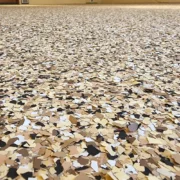A student’s life, filled with lectures, assignments, extracurriculars, and social activities, can be overwhelmingly busy. Amidst this whirlwind of commitments, personal spaces like dorm rooms or bedrooms often take a backseat, becoming cluttered and chaotic. Yet, an organized room can serve as an oasis of calm in a hectic student life, a place where ideas flow and concentration is at its peak. There’s a palpable connection between our physical environment and our mental state. And while students may often find themselves thinking, “I wish I could just write my paper for me on Paperwriter,” it’s equally important to consider the impact of their immediate environment on their productivity and well-being.
The Link Between Physical Space and Mental Clarity
Our surroundings significantly influence our mental processes. A cluttered room, filled with stacks of papers, tangled cords, and a bed buried under clothes, often mirrors a cluttered mind—scattered, overwhelmed, and stressed. Psychological research suggests that our brain likes order, and constant visual reminders of disorganization drain our cognitive resources, reducing our ability to focus. Moreover, sifting through clutter to find that one essential textbook or crucial piece of paper increases frustration and wastes precious time. The simple act of decluttering can free up not just physical space but also mental bandwidth, allowing for improved concentration, creativity, and peace of mind.
Step-by-Step Decluttering Process
Decluttering might seem like a daunting task, especially for busy students, but breaking it down can make the process manageable and enjoyable.
- Start with just 15-20 minutes. Setting a timer can make the task feel more achievable and create a sense of urgency.
- Begin by removing obvious trash: empty snack packets, outdated notices, and expired products. This instantly makes the room look better and provides motivation to continue.
- With the main trash gone, sort through your belongings. Place items into categories like ‘keep,’ ‘donate,’ ‘recycle,’ and ‘discard.’
- Be honest with yourself. If you haven’t used something in the past year, chances are you don’t need it. Hold on to items that add value to your life and let go of the rest.
- Assign a specific home for every item. This principle ensures that you can easily find what you need when you need it.
- Consistency is key. Always returning items to their designated places reinforces organization habits and prevents future clutter.
Remember, the aim isn’t perfection; it’s creating a functional, harmonious space conducive to a student’s academic and personal needs.
Organizational Tools and Must-Haves
For a student, having the right organizational tools can make all the difference in maintaining a clutter-free room. Consider investing in some essential organizers that not only help keep things tidy but also add an aesthetic appeal to the room. Transparent storage boxes are fantastic as they allow you to see their contents, eliminating the need to rummage. Labeling these containers can further streamline your retrieval process. For those with a plethora of academic materials, digital organizers or apps can be invaluable. These tools can help categorize notes, assignments, and research materials, ensuring they’re easily accessible when needed. Don’t forget the vertical space in your room: shelves, over-the-door hangers, and wall-mounted pegboards can be used to store items without consuming floor space. And while you’re at it, a simple, expandable file organizer can work wonders for paper-based materials, ensuring important documents are always at hand.
Daily, Weekly, and Monthly Maintenance Tips
Maintaining an organized room doesn’t have to be a cumbersome task. By incorporating simple habits into your routine, it becomes a seamless part of daily life. Every day, allocate a mere 5 minutes before bed to return items to their designated places. This nightly ritual ensures that mess doesn’t accumulate, making the room a pleasant space to wake up to. Weekly, you might want to dedicate a little more time, perhaps half an hour, to clean surfaces, do laundry, and ensure everything is in its right place. This habit can easily be combined with, say, listening to a podcast or an audiobook, making it feel less like a chore. On a monthly basis, a deeper review can be beneficial. Check your belongings to ensure that everything you have is still relevant to your needs. Donate or discard items you no longer use, ensuring that clutter doesn’t gradually creep back in. Over time, you’ll find that these routines not only keep your room tidy but also enhance your overall efficiency and peace of mind.
Making the Most of Small Spaces
For many students, especially those in dorms or shared accommodations, space is at a premium. This constraint, however, can be turned into an opportunity with some creativity. Firstly, consider multi-purpose furniture, like beds with storage drawers or ottomans that open up to store items. When dealing with limited floor space, look upwards. Wall-mounted shelves, hooks, or even corner shelves can be functional and decorative. Another strategy is to optimize the use of behind-the-door storage, a commonly overlooked space. Over-the-door shoe organizers, for instance, can be used for more than just shoes; they’re great for stationery, toiletries, and other small items. Remember, the goal is to find solutions that prioritize and optimize the available space, making it work best for your needs.
The Psychological Benefits of a Decluttered Space
Having an organized and decluttered space transcends mere aesthetics; it has deep psychological benefits. When you enter a room that’s orderly, it instills a sense of calm and orderliness in your mind. This is especially beneficial for students, as a serene environment can be a catalyst for improved focus and concentration. A tidy room also reduces the distractions and stress associated with searching for misplaced items. Moreover, the act of decluttering and organizing can give students a sense of accomplishment and control over their environment, fostering positivity. All these benefits coalesce to create an environment conducive to not just academic success but also personal well-being.
Final Thoughts
Organizing and maintaining a tidy living space may seem trivial compared to academic challenges. Some might argue that searching for the best paper writing service is a priority over tidying up. However, the environment in which you study, work and relax plays a crucial role in overall success and well-being. The state of one’s room can be a reflection of one’s mental state, and creating a clutter-free, organized space can be a stepping stone to achieving clarity in thought, purpose, and action.
Maintaining an organized room might require an initial investment of time and effort, but the rewards—both tangible and intangible—are profound. By incorporating the strategies and tips provided, students can create a space that not only supports their academic pursuits but also fosters personal growth and peace of mind.













Comments